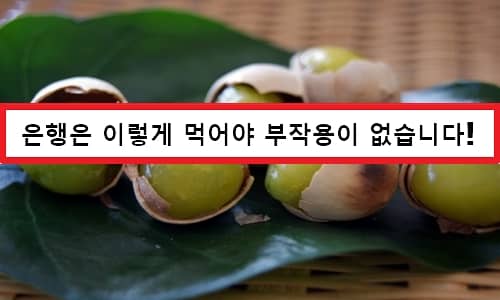What are the benefits of Ginkgo nuts, how to store it, how to eat it, side effects, calories?
Ginkgo nuts Nutrition

| Ginkgo nuts (100g) Nutrition | |||
| Carbohydrate | Protein | Fat | Calories |
| 38g | 2g | 1.6g | 183kcal |
| Main Nutrition | Promotes bronchial health, improves immunity, relieves skin problems | ||
| Main Benefits | Promotes bronchial health, improves immunity, relieves skin problems | ||
| Side Effects | It is not recommended to consume ginkgo nuts that have fallen on the road as they contain bacteria. | ||
The fruit of the ginkgo tree is called ginkgo nuts. It is surrounded by a hard shell, and the kernels are shiny, soft, and have a chewy texture. Ripe Ginkgo nuts emit a foul odor from their outer shells. So when eating, do not eat the peel. It has a bitter and savory taste and is not eaten raw. Ginkgo nuts can be eaten lightly stir-fried, added to rice, or added as a garnish or auxiliary ingredient to various foods.
2. Ginkgo nuts Benefits

1. Cardiovascular Health
Ginkgo nuts contain flavonoids, which help protect blood vessels and improve blood circulation. This is supported by research showing that when people with heart disease consumed ginkgo nuts, their levels of nitric oxide, which dilates blood vessels, increased. These effects also help prevent and improve cardiovascular diseases such as arteriosclerosis and myocardial infarction.
2. Skin Health
Ginkgo nuts contain flavonoids, which remove toxins from the body through antioxidant action that removes harmful substances entering our body. It also has anti-inflammatory properties, which helps prevent skin problems and promote skin health. This ingredient also helps prevent skin aging. Ginkgo nuts also contain a component called typenoids, which helps prevent skin wrinkles and moisturize the skin, helping to improve overall skin health.
3. Bronchial health
Ginkgo nuts help with bronchial health during seasonal changes. Ginkgo nuts are rich in vitamin C, which helps prevent colds by improving immunity. It has also been known since ancient times to have a good effect on asthma due to its ability to relieve inflammation. It also helps improve lung function and makes you warm, which helps relieve symptoms of coughing and phlegm.
4. Improves brain function
Ginkgo nuts contain an ingredient called lecithin. This ingredient is a precursor to neurotransmitters, and a lack of lecithin can lead to decreased brain function. So, consuming ginkgo nuts helps the brain function smoothly and improves memory. Additionally, lecithin affects the formation of nerve cells and helps maintain brain health by promoting the activity of brain cells.
5. Weight management
Ginkgo nuts are low in calories and low in fat, so they can be consumed without burden when managing weight. And since Ginkgo nuts are rich in protein, they can prevent muscle loss during weight management. And since it contains a variety of vitamins and minerals, it can supplement nutrients that may be lacking. Additionally, the lecithin contained in ginkgo nuts has the function of lowering cholesterol, helping prevent adult diseases and obesity.
3. Ginkgo nuts How to eat, how to bake
4. Ginkgo nuts Storage
5. Ginkgo nuts Side Effect
- Ginkgo nuts contain toxic substances. So, if you consume too much, you should be careful because in severe cases, symptoms of paralysis of the lower extremities may occur.
- Ginkgo nuts’ peels contain allergic substances, so you must be careful as consuming the peels may cause an allergic reaction.
- Ginkgo nuts that have fallen on roads or streets should be avoided as they may contain heavy metals.